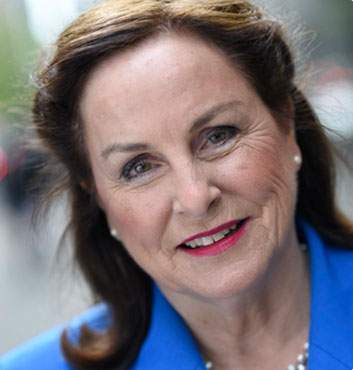According to the Substance Abuse and Mental Health Services Administration (SAMSHA), approximation in 2017, at least 20 to 23 million Americans age 12 or older needed treatment for substance abuse and addiction. There are about 14,000 addiction treatment centers in the U.S. alone from which to choose.
It’s a daunting task to pick one, and the buyer should beware of rehab facilities who claim to have “the cure” or 100% success rates. Don’t be fooled! With the rehab business blossoming, some unsuspecting parents have children who have become victims of the ‘patient brokering’ system, a kickback scheme in which brokers receive payment for referring patients to specific treatment facilities.
Make sure the facility is very clear about costs. Is your facility in-network with your insurance? If your child requires a longer stay than 28 days, will your insurance cover it? What about out-of-pocket costs (i.e. money for incidentals such as food, recreational activities)? How often will you be billed for urine screens and any other tests?
However, you can navigate the treatment system if you do your research, ask for help, network, and ask the right questions so you can be your child’s best advocate! I wouldn’t start with an online search. Instead, start with a trusted addictions counselor.
What To Look For In A Quality Treatment Facility
- How long have you been providing addiction treatment? How long does the program last? How successful is your treatment plan?
- Is it accredited? Does it possess the Joint Commission Accreditation for Addiction Treatment (JCAHO)’s Gold Seal for Behavioral Health; or a certification of Commission on Accreditation of Rehab Facilities (CARF)? This is not the same as state licensing. How long has it been in business?
- Does it treat detox medically? The detoxing unit should include both nurses and doctors. To ensure that seizures don’t occur, make sure the program has 24-hour medical care. Does the program also offer medication to alleviate specific symptoms of withdrawal like restlessness, nausea and diarrhea?
- The clinical 24-hr. staff should have specific credentials held by addiction treatment professionals such as LADC (Licensed Alcohol and Drug Counselor; LPC (Licensed Professional Counselor) or CCDP (Certified Co-occurring Disorders Counselor). Search for a physician affiliated with the American Society of Addiction Medicine,.
- Drug rehab centers need to be certified in order to advertise their programs and services on Google and Facebook via a 3rd-party provider called Legit Script.
- The multi-disciplinary treatment team consists of: a chemical dependency counselor, a M.D., nurse, psychiatrist, psychologist, nutritionist, wellness specialist, and a spiritual care counselor.
And Now For The Programs:
- Is the program gender and age-appropriate? One size does not fit all! Are there separate programs to address female vs. male experiences with substance abuse? A teen’s developmental needs are different from an adult.
- These are the components of a comprehensive drug abuse treatment: assessment, behavioral therapy, pharmacotherapy, substance use monitoring, clinical and case management, self-help, continuing care. Are they backed by scientific evidences?
- Does it address a patient’s motivation to change?
- Provide incentives to stop taking drugs?
- Build skills to resist drug use?
- Replace drug-using activities with constructive and rewarding activities?
- Improve problem-solving skills?
- Build better personal relationships?
Will the day-to-day schedule be provided to you and include:
- Group v. individual counseling sessions
- Recreational activities
- Chores or other responsibilities
- Support groups
- Weekday v. weekend programming structure
Are they equipped to handle co-occurring disorders such as depression, anxiety, trauma, eating disorders, etc.? It should be integrated into the curriculum. If not, are the mental health services coordinated with other providers?
Family Programs: The Whole Family Needs to Be In Recovery
- Does the facility provide family support programs such as education on substance use disorders, understanding the family dynamics, and ways the family can support their child’s recovery?
- Are there follow-up plans upon discharge? A mentor who is an alumnus may be assigned for your child. You may get followup calls as well to support you.
- Are there apps to build and strengthen recovery as well as continuing care groups?
Advice from Hazelden Betty Ford Foundation and Partnership to End Addiction.

Wesley Cullen Davidson
Wesley Cullen Davidson is an award-winning freelance writer and journalist specializing in parenting. Currently, she is targeting her writing about recovery to parents whose children have substance abuse disorders.